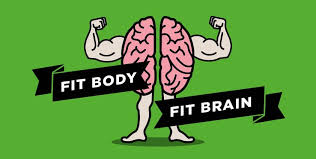Short-term benefits of exercise on physical health
- Learning for Life and Work

- May 7, 2020
- 2 min read
Updated: Dec 7, 2023
What is exercise?
Exercise involves engaging in physical activity and increasing the heart rate and your breathing rate beyond resting levels. This does not necessarily mean that you need to spend long periods of time in the gym but rather, it can be included in everyday life. For example walking to and from school, cycling, taking the stairs instead of a lift.

What is the recommended amount of exercise a person should do?
The UK government recommends that adults should aim to do 30 minutes of exercise five or more days per week and children and young people should do around 60 minutes every day.
Why is exercise important?
Exercise is an important part of preserving physical, emotional and social health. Keeping physically active can prevent major illnesses and is the basis for a healthier lifestyle.

What are the short term benefits of exercise to a person's physical health?
There are many short term benefits to a person's physical health if they exercise regularly. These include:
1. Losing weight - if you begin an exercise regime then a person will burn excess calories.
2. Sleeping better - as exercise works the body and a person may be tired by night time.
3. Better flexibility - as when exercising, the muscles are being stretched.
4 An increase of energy levels - as during and after exercise, blood is pumped all around the body.
5 An increase of blood flow to the brain and therefore concentration is improved.
6 An increase in body temperature which stimulates glands, nerves, common joints and the circulatory system.
Check out the CCEA GCSE Learning for Life and Work Second Edition Textbook to find out more or check out: My Revision Notes: CCEA GCSE Learning for Life and Work: Second Edition
As an Amazon Associate I earn from qualifying purchases.






Comments